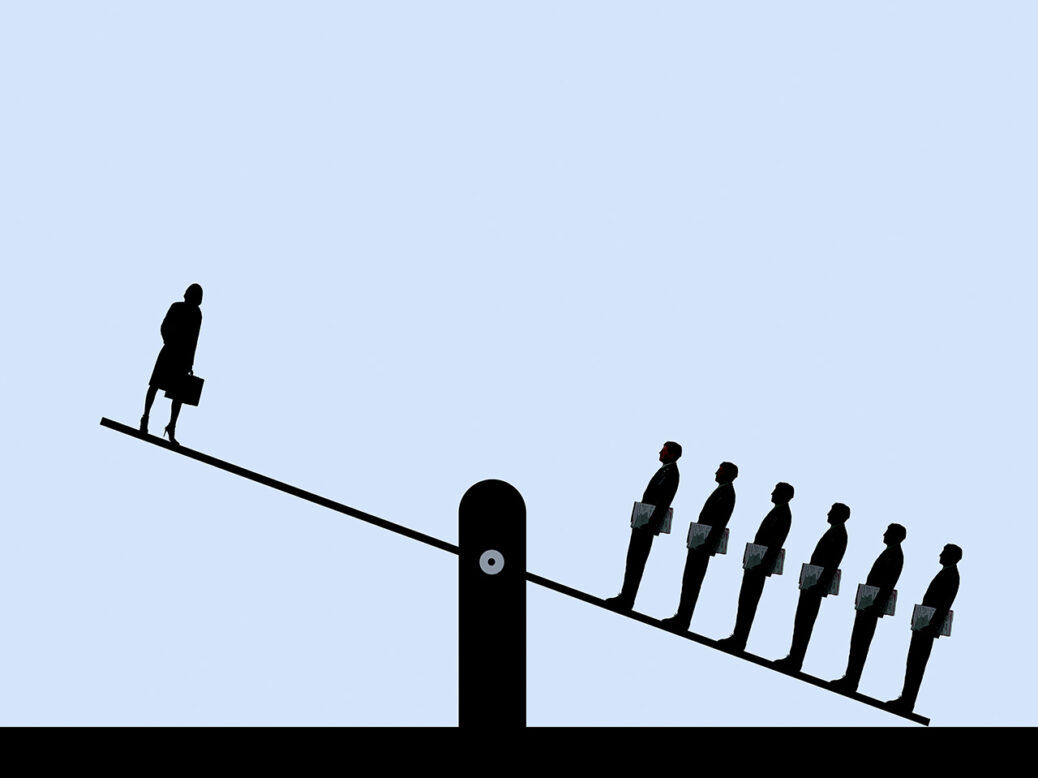
Support for the Conservatives among women has shrunk over the past decade. Before 2010, women were more likely to vote Conservative than men. Since 2015, women have been supporting Labour in higher numbers, to the point where women are far more likely to vote Labour in 2023.
This may go some way to explaining why the Conservatives are trying to push Labour into a corner over gender self-ID. By declaring themselves to be “standing up for women’s rights”, the Conservatives seem to be using the row over gender recognition to sow divisions between the Labour Party and its female voter base.
The Conservative Party will argue its commitment to women goes beyond politics – it has had three female prime ministers, whereas Labour has had none. The 2019 Conservative manifesto pledged to “fight crime against women and girls” and provide support for victims of rape and sexual abuse. Rishi Sunak himself has declared multiple times that, as a father to two girls, tackling violence against women is a personal priority. And the Conservatives’ stance on self-ID is primarily concerned with the protection of female-only spaces.
But action on violence against women and girls has not been forthcoming. Early last year, Boris Johnson’s government voted against Stella Creasey’s amendment to make misogyny a hate crime, as the Home Office declared it would be “damaging to the cause of women’s safety”. In December last year, Labour pointed out that the Tories had not forced the police to prioritise violent crimes such as rape and domestic abuse, despite pledges from the Home Secretary Suella Braverman earlier in the year.
Reform of the justice system could go a long way to bolstering the Conservatives’ record on violence against women. The charity Rape Crisis has reported that one in four women experience rape or sexual assault, and the National Police Chiefs’ Council has recorded that between two and three women are murdered every week in the UK by a partner, ex-partner or family member. At the end of last year, the Justice Secretary Dominic Raab pledged to “turn the tide of violence against women”, and introduced a rape and sexual abuse helpline and a “new approach to police investigations” that would focus on the behaviour of suspects, rather than victims.
Nonetheless, just 1 per cent of rapes result in a conviction, and the average wait for a rape case to go to court is three years. Last year, nearly two thirds of rape victims withdrew from investigations due to court delays, low conviction rates and the trauma of court proceedings. The deeper issue of a backlogged criminal justice system lingers on. Diana Fawcett, chief executive of charity Victim support, has warned that without reform “we are on a path to destroying victims’ faith in the criminal justice system altogether”.
There are also questions over the Conservative’s commitment to women in the labour market. Industries impacted by the cost of living – and resulting strike action – are majority-female staff. Women account for 76.7 per cent of the 1.3 million NHS staff, 75 per cent of the teaching workforce, and 54.5 per cent of the civil service. This means that the people demanding a higher wage and that are reporting an inability to keep up with the rising cost of living are overwhelmingly women.
[See also: UK inflation rate is substantially higher for women]
Then there are concerns with childcare. Joeli Brearley, founder and CEO of Pregnant Then Screwed, has written in the Express about how the extortionate price of early-years education is pushing parents out of the labour market and on to benefits: “[This] is the case for more than 870,000 women in the UK, according to government data from 2018. There are 1.7 million women who are prevented from taking on more hours of paid work due to childcare issues – be that availability or affordability.”
Despite considerable pressure about this issue from figures within the Conservative Party, such as the chair of the Education Committee Robin Walker and the former minister Andrea Leadsom, the government has so far done little to reform the childcare system. The autumn Budget of Chancellor Jeremy Hunt centred on rejuvenating a stagnating economy, and failed to provide any support for the rising cost of starting a family and its impact on the workforce, despite pleas from Brearley and other activists. “The reality is we are being completely set up to fail by this government,” Brearley added.
Last month, the government rejected the Women and Equalities Committee’s recommendation to make menopause a protected characteristic under the Equality Act. This was a cross-party recommendation, with back-bench Tories such as Caroline Nokes as well as the Labour MP Carolyn Harris spearheading the move.
The committee reported that menopause-related discrimination was widespread, and that a significant number of older women were leaving the workforce as a result. It argued that if its recommendation was adopted, women would no longer face discrimination and employers would be forced to provide support. They would be able to retain older, female workers. The government refused, partly on the basis it could discriminate against men.
Harris told me that she was “bitterly disappointed” by the government’s decision. “Over the last 18 months, we’ve been telling them repeatedly what they need to do in order to keep women healthy and in work, but they consistently deny women the opportunity to live normal lives through the menopause.”
The Tories will argue that their position on gender self-ID shows they are willing to stand up for women’s rights in a way that the SNP and Labour have not. But until the Conservatives adequately address workforce issues and violence against women and girls, there is little to suggest that their sudden commitment to protecting women is anything other than opportunistic.
Read more:
On the menopause, the government is insulting women with its lack of action
The women who shaped modernism
Congratulations on being the Universal Woman – now leave the rest of us alone



